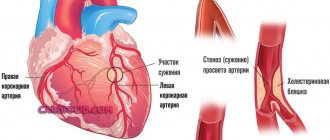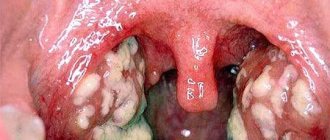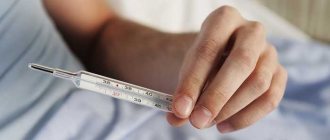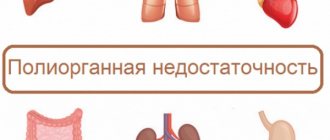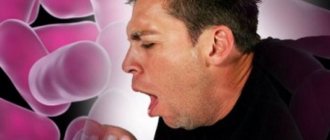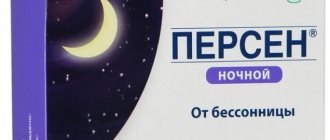How to cure cough at home? The answer depends on the cause of the pathology and a number of other factors. The cough reflex is the body's reaction to irritation of the mucous membranes of the respiratory tract; it can occur for physiological or pathological reasons.
Normally, a person has no more than 20 cough impulses per day. In the presence of a pathological process, the cough can be dry and moist (wet), which depends on the absence or presence of sputum, as well as acute, prolonged and chronic, depending on the duration (up to 3 weeks, more than 3 weeks or more than 3 months a year, respectively).
In most cases, cough can be treated at home, but this cannot be done in 1 day
If you suspect the development of a pathological process, you should contact a qualified specialist and undergo the prescribed examination. After diagnosis, the doctor will, if necessary, prescribe treatment, which can be carried out at home under medical supervision.
Basic therapy can be supplemented with traditional medicine, but they are not recommended to be used uncontrolled and/or as the only method of treatment.
Acute symptoms can sometimes be relieved in 1 day, but it usually takes longer to eliminate the cause of the cough.
What are the reasons for a cough?
Cough is a protective reaction of the human body to the appearance of any pathogen in it. A seemingly harmless cough can be caused by a respiratory infection, leading to the appearance of dangerous diseases - bronchitis, laryngitis.
The cough may be:
- Dry. This cough is more difficult for a person to endure, since such a cough causes debilitating, prolonged attacks without relief, leading to vomiting.
- Wet, with mucus secretion. Mucus removes harmful microorganisms from the respiratory tract. Thanks to this, a person recovers faster, most often without complications.
It happens that the cough goes away on its own. But most often, if a cough is not treated, serious diseases can develop, which sometimes even lead to death. It is for this reason that it is necessary to use all reasonable methods to treat cough.
There are many medical and folk methods for treating cough. It is best to use traditional methods that are gentler on the body. This will help you cope with your cough easily and quickly.
Any treatment for cough will be ineffective, and sometimes even useless, if a person does not know why it appeared. The most common cough triggers are related to viral and bacterial infections. But these infections are not always to blame for the occurrence of an unpleasant factor. There are many other pathologies that influence the occurrence of spasms of the respiratory tract. Cough may occur due to:
- Heart and vascular diseases.
- Diseases of the digestive tract.
- Oncological diseases.
- Pathologies of the nervous system.
- ENT diseases.
- Allergic reactions.
For each of the above cases, individual treatment is applied. Only a specialist will be able to select the right medications and decide whether it makes sense to prescribe any procedures.
Causes and risk factors
Most often, cough occurs in diseases of the respiratory system, which include acute respiratory viral infections, inflammatory processes in the upper and lower respiratory tract (pharyngitis, laryngitis, tracheitis, bronchitis, pneumonia), bronchial asthma, tuberculosis, and malignant neoplasms of the respiratory tract.
In most cases, the cough is due to a cold
This symptom can be observed in diseases of the cardiovascular system (congestive heart failure), gastrointestinal tract (gastroesophageal reflux disease), endocrine pathologies (thyroid diseases), helminthic infestations, and osteochondrosis.
In addition, the reason for the development of this clinical sign may be:
- allergic reaction;
- hypothermia of the body;
- inhalation of too dry and/or dusty air, chemicals;
- smoking (active and passive);
- foreign bodies entering the respiratory tract;
- stress;
- use of certain medications (angiotensin-converting enzyme inhibitors).
Diseases that cause cough can have non-infectious and infectious etiologies. The causative agents of infection can be viruses, bacteria, and microscopic fungi. In some cases, the disease may be complicated by the addition of a secondary infection. Cough attacks can occur during childhood infections (measles, whooping cough).
What you need to know about drug treatment
To quickly get rid of a cough, you need to find out why it appeared. A person can cough due to exposure to harmful viruses and bacteria, pathologies of the digestive tract, nervous diseases and for many other reasons. In each individual case, the doctor prescribes medications, which are divided into categories, and can be:
- Bronchodilators . They have an effect on the bronchi and have a relaxing effect on smooth muscles, which allows them to remove spasms. These medications normalize air circulation in the bronchi due to their expansion. As a result, the patient's breathing normalizes.
- Mucallytic means . These products help separate viscous secretions. After taking them, the mucus becomes thinner and easier to remove from the body.
- Expectorant drugs . These medications are inexpensive but quite effective. They are prescribed in cases of sputum discharge along with cough. The secretion is removed from the body faster due to irritation of the mucous membranes.
- Antitussive drugs . These drugs contain substances that affect the human nervous system, locally affecting bronchial receptors, reducing their activity and eliminating spasms.
- Combined . These drugs have a comprehensive effect on the human body, reducing the severity of cough, relieving pain, diluting secretions, and destroying bacteria. The use of these medications helps cure even the most complex infections.
To select the most effective cough remedy, you need to consult a doctor. To identify the reasons for the respiratory spasm, you should not refuse the detailed examination prescribed by your doctor and the necessary tests.
To relieve a patient from coughing, the doctor takes into account the following factors:
- Pathology that may be causing this symptom.
- Presence of concomitant infections.
- The patient has chronic diseases.
- Age category.
- What type of cough is it?
- What are the features of discharge during coughing?
- Does the patient have a tendency to allergic reactions?
Manifestations of bronchitis
Bronchitis is a complication of respiratory diseases. It manifests itself in several types of cough. The easiest to tolerate are wet (with expectoration of sputum) and residual (after eliminating the bacterial pathogen).
The following types of cough are also characteristic of bronchitis:
- dry paroxysmal - appears at the initial stage of the disease. Without relief with medications, it may be accompanied by vomiting;
- suffocating - severe spasms of the chest cause pain in the sternum, sensations of lack of air, suffocation. It is not possible to cough for several minutes, during which tissue hypoxia occurs;
- with bloody sputum - debilitating attacks cause capillary ruptures and tissue cracking. If it appears, undergo additional examination to rule out pneumonia or tuberculosis.
To treat a severe cough, it is necessary to destroy the causative agent of bronchitis - a bacterial infection. To do this, the doctor prescribes a course of antibiotics and anti-inflammatory drugs. Medicines to expand the lumen of the bronchi, dilute sputum, and remove it from the body help relieve cough symptoms.
To speed up recovery, you can use traditional medicine methods. To do this, place mustard plasters and warm compresses on your back in the sternum area, and rub yourself with ointments with essential oils. Remember, skin irritation accelerates blood circulation and dilates blood vessels. As a result, the chest organs are saturated with oxygen, nutrients and medicinal substances.
What medications can quickly eliminate dry cough?
To get rid of a dry cough without sputum production, the following medications are used:
- Gerbion. This cough syrup is a safe remedy that eliminates spasm of the respiratory tract. After taking it, the viscosity of the secretion decreases, the tissues are disinfected. Herbion for dry cough helps coat and protect the respiratory tract, and the presence of vitamin C in it strengthens local immunity.
- Falimint. The dragee has a mild analgesic effect, eliminates irritation of the mucous membranes and has a sedative effect. The product is used for dry coughs without sputum production. It is taken by adults and children from 5 years of age.
- Sinekod. The syrup helps fight the most severe and obsessive coughs. It blocks the cough center, which is located in the human brain. Due to codeine, which is part of the drug, Sinecode has many contraindications; it is not recommended for children.
- Codelac. These are tablets, elixir or syrup. It is an antitussive drug that has a central effect. It is made from natural substances. The drug is prescribed for dry and wet cough. When taken, the excitability of the respiratory system decreases, thereby eliminating cough. But the drug does not depress the respiratory center, so it is not suitable for long-term treatment - dependence may occur.
- Libexin. Inexpensive syrup or tablets have a pronounced antitussive effect. Eliminate irritation, restore nerve fibers, and have a relaxing effect on the respiratory tract. The drug does not inhibit the functioning of the respiratory center, thins mucus and reduces inflammation. Adverse reactions may occur - fatigue, drowsiness, dizziness, so it is not recommended for drivers.
Attacks of bronchial asthma
An allergic cough occurs when an irritant is inhaled. It can be plant pollen, mold spores, particles of fluff from a pillow or pet hair. Allergy turns into bronchial asthma with a hereditary predisposition to the disease, constant contact with an irritant, and weak immunity.
This cough has characteristic features:
- attacks intensify at night and in the morning;
- there is no separation of sputum;
- wheezing is heard during a deep breath;
- upon contact with an allergen, the intensity of attacks increases.
At the severe stage, the whistling sound when breathing is heard by everyone in the room.
To relieve an attack, the patient uses medications in aerosol form. For example, “Salbutamol” instantly relaxes the muscles of the bronchi and relieves spasms. But remedies of this type do not treat the cause of the disease, but only stop severe coughing to prevent hypoxia.
To treat a severe cough in bronchial asthma, the doctor prescribes antihistamines, expectorants, and restorative drugs. The patient should be protected from physical work, nervous experiences, and contact with people who smoke. Sometimes, the only way to get rid of allergic attacks is to move or change your place of residence.
What medications can you take to quickly cure a wet cough?
To quickly get rid of a wet cough, the doctor first determines the nature of the discharge, conducts a general analysis of the person’s condition and studies his tests. And only after that he prescribes one of the following drugs:
- ACC or similar means. These are fast-dissolving effervescent tablets. The product allows you to quickly dilute the secretion secreted by the bronchi and remove it from the body. The drug acts as a local anesthetic and is an antioxidant. Prescribed for adult patients.
- Mukaltin. Produced in tablet form. It is a mucolytic agent that quickly thins mucus. Gives excellent results after several days of use. It can be taken by children over 12 years of age and adults who do not suffer from allergic reactions, diabetes mellitus and do not have pathologies of the digestive tract.
- Ambroxol. Tablets or mixtures are prescribed for serious pathologies of the respiratory system and can be taken as a prophylactic agent. The drug removes mucus and quickly eliminates inflammatory processes in the respiratory organs.
- Bromhexine. The tablets should be taken by people who produce thick mucus when coughing. The drug has almost no contraindications and does not reduce the effectiveness of antibiotics. When taking, you should drink plenty of water.
- Bronholitin. Syrup is the most effective combination product. It deactivates the cough center, removes bronchial mucus, and removes swelling of the mucous membranes. It is prescribed for both adults and children. However, in rare cases, when taking it, blood pressure increases, dermatitis or rapid heartbeat may occur.
Further treatment
First aid for an attack is only one component of treatment. You cannot limit yourself only to emergency methods; you need to influence the cause.
A cough does not just happen; it is always the body’s response to some irritant. Before starting treatment, you need to see a doctor for a diagnosis.
The main groups of drugs that are used:
| Group of drugs | Mechanism of action, under what conditions they are used | Examples |
| Antibiotics | Used for tonsillitis, adenoiditis, bronchitis, which are caused by bacteria. Antibiotics from the macrolide group are prescribed for whooping cough. Used only as prescribed by a doctor. | Amoxicillin Amoxiclav Azithromycin |
| Antiviral | Used for influenza | Remantadine Oseltamivir Zinamivir |
| Mucolytics | Used for viscous sputum. Reduce viscosity and promote mucus removal. | Acetylcysteine Bromhexine Ambroxol (mixed action) |
| Secretomotor | Used when it is difficult to separate sputum. They enhance the secretion of bronchial mucus and the activity of the ciliated epithelium. | Mukaltin Alteyka syrup Ambroxol (mixed action) |
| Antitussives | Used for painful, obsessive cough. Inhibits the cough center or peripheral receptors. | Central action: Glaucine, Oxeladin, Butamirate. Peripheral action: Libexin, Lidocaine |
| Antihistamines | Used for allergic diseases, for example, for the cough variant of bronchial asthma. They have anti-allergenic and anti-edematous effects. | Suprastin Loratidine |
| Decongestants (vasoconstrictors) | Used for nasal congestion. They affect the vessels located in the nasal mucosa. Vasoconstriction leads to a reduction in swelling and restoration of nasal breathing. | Nazivin drops Naphthyzin Vibrocil |
| Antiseptics | Used for infections of the tonsils and pharynx. | Chlorophyllipt (for rinsing) spray Ingalipt |
How to quickly cure a cough with folk remedies
To treat cough at home, you can also use folk remedies. The combined use of medications and folk remedies also gives good results. But before starting treatment, you should consult your doctor.
The most useful means:
- Drinking warm milk. Warm milk coats the mucous membranes, thins mucus and warms the body. For better results, honey is added to milk to enhance its antibacterial properties. You can dissolve butter in the drink, which reduces spasms, relieves coughs and protects mucous membranes.
- Use of animal fat. Animal fat has medicinal properties because it contains many useful substances. Fat helps soothe throat inflammation and thins mucus. Lard is taken either in pure form or mixed with other products.
- Taking burnt sugar. In order to get burnt sugar, you need to heat granulated sugar until it turns into golden caramel. After this, it is poured into molds and dissolves like candy. This is a good way to treat dry cough. To enhance the therapeutic effect, sugar is taken with lemon, honey, warm milk or infusions of medicinal herbs.
- Honey. Everyone probably knows that honey is a disinfectant, antiviral and antibacterial agent. It allows you to quickly get rid of cough. To do this, a spoonful of honey is slowly absorbed. For greater effectiveness, honey is taken with milk, added to black radish juice or to decoctions of medicinal plants.
Methods of therapy
Air humidification
To cure a severe cough, the patient is prescribed specific and nonspecific treatment methods. The room where the patient is located is maintained at optimal temperature and humidity. To do this, use special humidifiers and regularly carry out wet cleaning. There is a need to increase the daily volume of fluid. This helps reduce the concentration of accumulated sputum and the intensity of cough.
The patient will have to give up addictions. To stop the progression of the pathology, the patient is prescribed medications with expectorant properties. Their mechanism of action is quite simple. The active ingredients of drugs of this type have an irritating effect on the membranes lining the respiratory tract. The selection of the medication regimen is carried out by the doctor.
To relieve a debilitating dry cough, medications containing:
- codeine – Codterpin, Codelac, Glycodin, Omnitus, Codeine, Libexin;
- β-blockers – Sinekod, Stoptussin, Flavamed;
- vitamins, minerals.
Vitamins
This list is supplemented with antibiotics, anti-inflammatory, antiviral, and antihistamines. Cough remedies are sold in the form of tablets, capsules, solutions for intravenous and intramuscular injections.
The patient’s treatment package includes physiotherapeutic procedures. Among them:
- inhalation;
- electrophoresis;
- UHF;
- warming compresses;
- rubbing;
- breathing exercises;
- percussion massage.
The latter is a technique for patients that warms the chest, facilitates the coughing process, and calms the central nervous system. It is allowed to use non-traditional treatment methods at home. To prepare decoctions and infusions, patients use pine needles, melted sugar, natural honey, milk, and badger fat. The list of medicinal plants includes cabbage and black radish. The most effective herbs include:
Sage
- wild rosemary;
- sage;
- thyme;
- pine buds;
- calendula;
- mint;
- marshmallow;
- coltsfoot;
- oregano.
The most popular include the following folk recipes:
- Gogol-mogol. To prepare it you will need sugar and a few eggs. The components are combined and mixed thoroughly. The prepared mixture is drunk in the morning, afternoon and evening.
- White wine with pepper. The roots of the latter (50 g) are boiled in wine (250 ml). At the next stage, the medicine is filtered. You need to drink the composition that helps with cough three times a day.
- Goose fat and onions. The chopped vegetable is mixed with fat. The resulting ointment is rubbed into the neck and chest area. Onions can be combined with milk, sugar and honey.
- Banana mass. The fruit must be crushed and combined with water. For two bananas take one glass of water. Add sugar to the resulting mixture. At the last stage, it is kept on low heat.
- Butter (20 g), chicken eggs (2 pieces), honey (50 g), wheat flour (50 g). The components are mixed, and the homogeneous mixture is consumed before meals.
Diet
The patient's diet is of great importance.
The diet includes viscous foods (mashed potatoes, cereal porridge, vegetable soups). Grape juice combined with honey, warm milk, and tea has a positive effect. Strong coffee, alcoholic drinks, and spicy foods are prohibited. Ignoring these recommendations is fraught with deterioration in health.
How to quickly cure a child's cough
If a small child develops a cough, you should immediately consult a pediatrician, since self-medication can end in failure. However, you should not neglect simple folk remedies:
- It never hurts to give your child inhalation.
- Mustard plasters will warm up a coughing child.
- You can use the old “grandfather’s” method - give the baby cans.
- For tracheitis or bronchitis, the child should be given mucolytic and expectorant drugs.
- Give your child plenty of fluids - warm tea, infusions and decoctions of medicinal plants, fruit drinks, warm milk with the addition of a small amount of butter.
- To get rid of a dry cough, it is fashionable to give children hot foot baths.
- In the room in which there is a coughing child, it is necessary to maintain normal humidity conditions.
- In some cases, a light and gentle chest massage helps get rid of a cough, or make it less intense.
Drink plenty of fluids
How to quickly cure a severe cough - pharmacological medications should be taken with the correct drinking regimen. Pathogenic agents of acute respiratory viral infections and colds produce substances harmful to humans during their life processes. They penetrate the bloodstream and spread throughout the body.
The patient develops signs of extensive intoxication: nausea, fever, excessive sweating. You can reduce the severity of symptoms by drinking plenty of fluids.
What is best to use for a severe cough:
- chamomile tea, rosehip decoction;
- mineral water Borjomi or Essentuki No. 2 and No. 4;
- vitamin infusion with dried currants, cranberries, raspberries;
- a mixture of milk and honey;
- infusions from a collection of medicinal herbs: calendula, sage, wild rosemary.
Such drinks not only remove waste and toxins from the body. Daily consumption of 2-2.5 liters of fluid helps the formation and dilution of sputum. Medicinal herbs contain substances that have anti-inflammatory and bactericidal properties. Under their complex influence, the regeneration of the damaged mucous membrane of the respiratory tract is accelerated.
If you have a severe cough and/or runny nose, you should not drink coffee or strongly brewed black and green tea. Tea leaves and coffee beans are high in caffeine and tannins. These drinks increase a person’s vitality, but at the same time dehydrate the body, which will significantly slow down recovery.
Severe cough can be cured with pharmaceutical syrups
How to quickly cure a cough in a pregnant woman
Medicines for pregnant women are prescribed by a doctor. Self-medication is prohibited. You need to take medications very carefully in the first three months of pregnancy, when the systems and organs of the baby begin to form in the womb.
The following folk remedies may be suitable for treating cough:
- Inhalation. For inhalation, it is suitable to use medicinal plants - string, wild rosemary, chamomile, or essential oils of mint or eucalyptus.
- Taking herbal decoctions. Decoctions of chamomile, string, and plantain are taken orally. A decoction is prepared from 1 tablespoon of herb brewed with a glass of boiling water. You need to take it 3 times a day.
- Cabbage leaf compress. The cabbage leaf is smeared with honey, placed on the chest, covered with a towel or scarf and kept on all night.
Pregnant women are not recommended to take medications, but it is not always possible to use folk remedies. In this case, you must consult a doctor to prescribe cough treatment. Doctors are trying to cure the patient with drugs of plant origin, containing thyme, marshmallow, and primrose.
General recommendations
In case of severe paroxysmal cough, it is necessary to observe bed rest for at least 2-3 days. Then you can get up for a while and move around the room. You can take your first short walk in the fresh air 7-10 days after the start of treatment and if you feel well.
The air in the room where the patient is located should always be moist and fresh. These conditions are difficult to meet in winter, during the heating season. But a person coughs, as a rule, precisely in the cold season. If it is not possible to purchase an automatic air humidifier, then daily wet cleaning and airing (without the presence of the patient) of the room will help solve the problem.
You will have to quit smoking, at least for the duration of treatment. Tobacco smoke will negate all the efforts of doctors. A smoking patient will definitely recover, but the duration of therapy will be delayed indefinitely. Cigarette smoke contains a huge amount of poisonous tars and toxic compounds, each of which can irritate a sore throat. Pulmonologists note that with a strong cough, the craving for smoking weakens. Therefore, bronchitis, laryngitis or sore throat often become the starting point for completely giving up a bad habit.
Proper nutrition for all diseases accompanied by a severe cough is of great importance. Many people with inflammation of the bronchial mucosa or bronchioles suffer from lack of appetite and complain of pain when swallowing. It is necessary to eat - without a constant supply of nutrients, it is difficult for the body to mobilize to fight infection.
The patient's diet should include:
- puree soups;
- steamed chicken breast;
- fresh vegetables and fruits;
- curds, yoghurts;
- whole grain porridge.
You should eat in small portions 5-6 times a day. To increase appetite, pulmonologists recommend taking complex vitamins with microelements (Vitrum, Centrum, Complivit, Selmevit). If a person has a strong cough to the point of painful vomiting, then he may experience attacks of nausea at the mere sight of food. In this case, you cannot do without the use of antiemetic drugs - Metoclopramide, Cerucal.
Taking Precautions
Since the nature of the cough varies, it is necessary not to neglect precautions during treatment. Treatment methods should be chosen after establishing the nature of the cough. Each treatment method is not without contraindications. Therefore, you should choose medications and folk remedies very carefully to avoid allergic reactions. The greatest caution should be observed when treating cough in children, pregnant women or nursing mothers.
The presence of the following pathologies in patients is also dangerous:
- Cardiovascular diseases.
- Diseases of the digestive tract.
- Pathologies of the kidneys and liver.
- Hormonal imbalance.
- Oncological diseases.
- Pathologies of the neurological system.
To quickly get rid of a debilitating cough, you need to consult a doctor in time to establish an accurate diagnosis and select the optimal medications. To enhance the effect of treatment, you can additionally use folk remedies, but only after the recommendation of a doctor.
Treatment of cough during pregnancy
The occurrence of cough during pregnancy is an unpleasant symptom that can cause serious problems if self-medicated. Many drugs are contraindicated for pregnant women due to their negative effects on the fetus. However, it is important to trust your doctor and prevent the disease from becoming chronic.
Drug treatment will be appropriate to the pregnant woman's gestational age.
Most often during pregnancy, medications based on medicinal herbs are prescribed. These medications include the following:
The dosage and duration of treatment are also prescribed exclusively by the doctor. To alleviate the condition, it is recommended to resort to unconventional methods of treatment.
Some useful tips and recipes for quickly getting rid of cough at home
Anyone can get sick and start coughing. A cough has a negative effect on the entire body: a person feels unwell, and people around him look askance at him. Therefore, it is not surprising that each of us tries to recover quickly.
Currently, there are various medications that can quickly get rid of a cold cough. You can also cure a cough with folk remedies that have been tested by many generations of people.
With the help of folk remedies you can get rid of a debilitating and severe cough. However, it is very dangerous to self-medicate. In cases where traditional medicine cannot quickly get rid of a cough, you should consult a doctor.
Coughs can be overcome with onions
Onions contain many biologically active substances - phytoncides, which are antiviral substances. In addition, onions contain selenium, which is a natural antioxidant and stimulates the immune system. Taking onions helps the body overcome the disease.
Cough caused by colds or viral diseases is treated with raw onions, which can be taken without anything or with different dishes. Do not forget that heat treatment takes away the medicinal properties of the vegetable.
Onions are taken in different ways: grated or mixed with honey. Onion juice and honey are added to warm milk. A couple of finely chopped onions and garlic help young children recover faster.
Treatment of cough by gargling
A dry cough greatly irritates the throat. To relieve irritation, it is recommended to gargle:
- Dissolve 2 teaspoons of baking soda in 200 ml of warm water. Frequent rinsing relieves coughing attacks and relieves sore throat. After eating and before going to bed, be sure to gargle.
- The following recipe is suitable for adults: gargling with the composition: add ½ teaspoon of fresh propolis and 20 drops of alcohol tincture of propolis to a glass of water. Rinse 3 times a day.
- Dissolve ½ teaspoon of salt and 2 drops of iodine in a glass of water. Gargling helps relieve a sore throat and also makes a dry cough moist.
Cough is treated by warming the chest
To quickly get rid of a cough, you need to warm up the lungs and bronchi. To do this, you can put cups, mustard plasters on the patient, make a warm compress or rub. Thermal procedures are prohibited at elevated body temperatures. For a compress, boiled warm potatoes (mashed potatoes), honey, onions, and animal fat are suitable.
The compress should be applied to the chest or back of the coughing person, covered with gauze and polyethylene. Tie a woolen scarf or blanket over this. After removing the compress, you need to anoint your skin with sunflower oil.
Preventing a severe cough
To prevent coughing, the patient must follow preventive measures. They strengthen the immune system and stop the negative effects of external factors. Doctor advises:
- Dress for the weather.
- Take vitamins in autumn and spring.
- Forget about tobacco products and hookah.
- Limit contact with infected patients.
- Get medical examinations regularly.
- Eat properly.
- Exercise.
- Increase the volume of fluid consumed.
- Get vaccinated every year.
Cough vaccine
Cough is a symptom characteristic of all colds. A natural reflex is necessary to cleanse the body and relieve allergic factors. A dry cough does not improve the patient's general well-being. To achieve recovery, the patient will have to undergo long-term therapy. A persistent cough is easier to prevent than to cure. Therefore, if signs of acute respiratory viral infection, acute respiratory infections and bronchitis appear, the patient should immediately visit the attending physician.
What can phlegm tell you when you cough?
A wet cough leads to the removal of mucus from the bronchi. This is a productive type of cough and usually indicates inflammation in the lower respiratory tract. Sometimes the sputum is thick and not released in sufficient quantities, so medications are required to remove it. Mucus is a favorable environment for the proliferation of bacteria and viruses, so retention of sputum in the bronchi is dangerous.
A productive cough with sputum, the treatment of which is to eliminate the root cause, can be a symptom of various diseases: bronchitis, ARVI, pneumonia, etc.
Depending on the disease that provoked this symptom, there are several types of sputum:
| Sputum color | Causes |
| Yellow | Yellow or yellow-green color indicates the presence of pus in the sputum. This phenomenon is characteristic of some bacterial infections: bronchitis, pneumonia, sinusitis. Such diseases should not be missed or left untreated; they can lead to serious complications and the spread of infection to other organs. As a rule, yellow sputum is accompanied by elevated body temperature. In some cases, yellow sputum appears due to smoker's bronchitis. |
| Pink | The presence of blood in the sputum indicates damage to blood vessels in the bronchi. This alarming symptom appears both in acute bronchitis and in lung cancer. In this case, an examination is mandatory. As a rule, hemoptysis does not occur in the first stages of cancer, so delay can be dangerous. |
| White | When we talk about thick phlegm that resembles cottage cheese, we can talk about a fungal infection. This phenomenon occurs after long-term use of antibiotics, when one’s own immunity decreases and the amount of pathogenic microflora in the bronchi increases. |
| Transparent | Less dangerous is thin, clear sputum, which is characteristic of viral infections. It may not be accompanied by other symptoms. The production of clear sputum is also observed in allergic bronchitis. |
You should consult a doctor for help if there is blood in the sputum, severe shortness of breath, cough leading to vomiting, or elevated body temperature. The appearance of purulent sputum should not be ignored, and it is also not recommended to take antibiotics without a doctor’s prescription.
Differences between dry and wet cough
It is not difficult to determine the characteristics of the inflammatory process if you look closely at the symptoms. After the examination, the therapist will easily tell you what type of cough is bothering the patient:
- Dry – no sputum is produced when coughing. Coughing causes discomfort and burning in the chest. It occurs during colds at the initial stage.
- Wet cough - accompanied by sputum production. The inflammatory process occurs in a severe form, as evidenced by clots of mucus or pus.
The causes of these two types of cough are different. The same treatment is unacceptable. It is important to first establish the nature of the disease; only after this are medications purchased or procedures performed.


